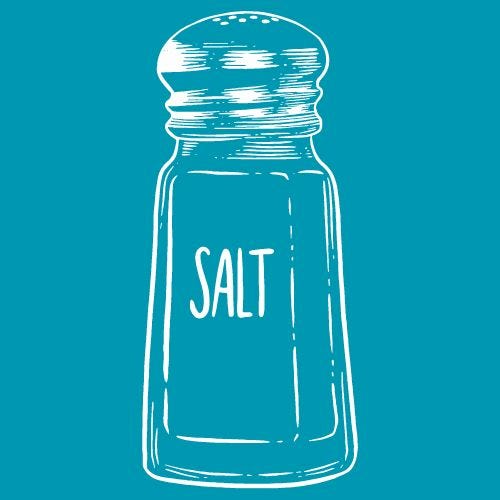If you’ve ever considered traditional publishing, you might’ve heard about this little thing called querying. Writers love it (jk) and really look forward to doing it (jk again). But since it’s a necessary step in the traditional publishing process, it’s an adventure you might decide to embark on one day, and I’d love to demystify the process for you.
Below is the querying process I followed that resulted in five offers of representation from literary agents (and, ultimately, a book deal). Whether you’re about to begin looking for an agent, are already deep in the process, or won’t be there for a while, I hope this information helps you feel a little less lost!
First things first: You shouldn’t query agents until you’ve revised your novel several times, ideally after receiving feedback from critique partners, and feel that you’ve taken it as far as you possibly can on your own.
This is because you can only query agents once per book, so if you make changes later and an agent has already passed, you’ve used up your one opportunity to query them too soon. But you can begin thinking about querying well before your book is ready.
While I revised my novel, I kept a running list of agents who represented books I felt were similar to mine. Peek at a book’s acknowledgement section and you’ll likely find the agent’s name.
Once I started wrapping up the final round of revision, I began doing more in-depth research. The first step was making accounts on QueryTracker and Publishers Marketplace.
QueryTracker compiles querying data contributed by writers to identify trends and habits of specific agents, such as their response rate, the genres they’re actually requesting (versus what they say they want), and more. QT can be used for free, but the premium membership offers more robust information that I found very useful. It also tracks your query statuses.
Publishers Marketplace is an industry website containing data about literary agents, book deals, publishing news, and more. There are no free options for this site, and it comes with a price tag of $25/month. Some writers only sign up for a single month as soon as they're ready to use it for research. P.S. I won’t tell anyone if you split the cost with a friend.
Here’s how I mainly used QueryTracker for research:
Search for agents by name, agency, and genre
Track agents you might want to query (or at least want to research further)
In an agent’s profile, read comments left by real writers. Learn how long it took the agent to respond to each query (if at all) and what the outcome was. Commenters often note positive and negative experiences with agents
Use advanced features to see an agent’s response rate, timeline, a list of other agents with similar taste, raw data on each agent, and more
I found Publishers Marketplace helpful in these ways:
To search for the agents based on a range of criteria, such as “who represents” an author, agents who represent debut novels, and agents representing your genre
To search for editors who have acquired debuts and who represent your genre. You can see which agents sold books to them
Many (but not all) agents have informational pages on PM where they explain their wishlists in depth
These two sites alone can help you build a pretty robust list of potential agents. Your list will likely be very long. That’s okay! If you start with 100 names, you’ll cull it over time while also adding agents as you discover them. And if sending 100 queries sounds wildly high to you… just know it’s very normal!
Once I had a list, I started digging into each agent a little deeper to make sure they were a good fit. To further research agents, visit agency websites and read their profiles. Google their names and read the Manuscript Wishlists, interviews, blog posts, podcast episodes, etc that come up.
Social media is also a great way to learn about some agents. But make sure you’re interacting with agents respectfully online. Be professional, be kind, and do NOT pitch your book in their DMs!
You may want to keep a separate spreadsheet for short notes on each agent (top pick, actively seeking books exactly like mine, represents one of my comp titles, currently closed to queries, etc). You can also keep notes in QueryTracker. I highly recommend establishing some kind of organizational system at the outset because this process WILL get unwieldy the longer you do it!
Once you’ve researched agents, organize your list into Dream Agents, Great Fits, or Maybes. This ranking is just for you, but it’ll help keep your query batches balanced.
Ideally, you’ll send queries out in small batches rather than query every agent at once.
Ranking agents allows you to query a few agents in each category at a time while you wait for responses and assess if your query is garnering interest. If you query all of your dream agents in the first round and later decide your query letter is not grabbing attention, you will have already run through your only chance with your top picks.
I can’t get into query letters in this post, but there are MANY resources to help you write an effective one! It’s worth spending as much time as possible polishing your letter, as it's the first impression an agent will have of you and your book.
Start with a handful of agents from different tiers for round one. The first round will tell you if your query letter is working. Keep in mind, even if you get a bite or two in round one, you’ll still send out more queries! You won’t miss the chance to query your dream agents, so it’s ok to hold those agents for later rounds.
If you receive no bites after a few weeks, you might want to revisit your query letter. I also recommend including agents with a higher response rate (per QueryTracker data), so you’re more likely to receive a reply in the initial round.
Before you send any queries, read the submission guidelines on each agent’s website. They all have unique requirements. Check and recheck the requirements before hitting send!
Once you’ve sent your first query letters, take a deep breath. This is when it starts to get real. And when you’ll have to flex your patience muscle!
The responses will either be:
No response. It stinks, but many agents consider no response after X amount of time as a no. Check their guidelines so you know when to “close out” a query on your end.
You could get an email telling you they’re passing and wishing you good luck. Log this outcome in your tracking system and, if you’d like, thank the agent for their time.
You could get a request for more pages, either a partial or full. This is great! Enthusiastically send the requested pages.
When you have several agents reading your partial or full manuscript, consider adding a line to your query letter stating that your manuscript is currently being considered by other agents. I did this because I felt it was considerate, and I also figured it would signal that my query was worth looking at. And a little but of FOMO never hurt anyone!
However, NEVER lie about your manuscript being out with other agents or about an offer of representation. Only deploy the help of FOMO when it’s true!
If an agent follows up on a full request gushing about your book and requesting to have A Call™️, YAY! They want to offer you representation. This is THE MOMENT!
Take the call, hear their vision for your book, and ask any questions you have. Then tell them you’ll get back to them in about two weeks. This is a standard timeframe for you to then notify other agents who are still reading your partial or full manuscript that you’ve received an offer. Give them a deadline a few days before the date you gave the offering agent, so you have a little buffer time to consider any additional offers.
Be sure to follow up on any outstanding queries, too. If an agent hasn’t yet responded to your query and it’s still within the timeframe for what they consider a pass, let them know about your offer and give them a deadline.
Don’t skip this step! Even if an agent hasn’t read your query yet, this will likely get you an influx of full requests and possibly a few more offers. This is actually how I connected with my agent!
I could go on and on about querying, as you can see. But I’ll stop here for now.
In the comments, let me know any questions you have about this process and I’ll be happy to answer them!
And if you’ve been in the query trenches before, please leave a comment with tips you’d like to share with other writers. The more we all share about our experiences, the less confusing publishing will feel for everyone.
Kristin Offiler holds an MFA from Lesley University. Her short fiction has appeared in the Waccamaw Journal, The Bookends Review, The Bookends Review Best of 2020 print anthology, and the Raleigh Review. When she’s not writing, she can be found reading on the porch of her 130-year-old house or exploring charming corners of New England. She lives in Rhode Island with her husband and son. Her debut novel, THE HOUSEWARMING, comes out August 1st from Thomas & Mercer.
Kristin is also one-half of the duo behind the Substack The Meaning Makers:








This piece was both (1) an incredible recap of what I remember "the rules" to be from my 2019 querying, and (2) an EXPANSION of what I learned. I think those bolded lines near the bottom are my own--I couldn't figure it out because I did it while reading your google doc, and then I couldn't tell from the edit history, ha! I decided to leave the bolding (mine or yours) because those particular points were so novel or important, to me!
Five offers! Wow!!! This is so helpful, Kristin, and I especially appreciate your final tip about taking time after the call before you accept--and leveraging that waiting period to try to get more interest from agents who haven't replied. Brilliant! (As is the multi-tier approach.)
For query examples, I often refer people to Andi Bartz's substack because she has a TREASURE TROVE (much as I hate that phrase) of actual queries by published suspense writers, including some PT contributors.
https://andibartz.substack.com/p/how-to-pitch-your-book
For those people reading all the way down through the comments:
I'm on agent #3, over a 20-year span. I got my first one after pitching to her at a conference. (I personally believe that in-person meetings can be more fruitful than cold querying, or at the very least a good secondary avenue.) I got #2 and later #3 after getting emails of introduction from editors. Many of my clients have been able to break through and at least get a partial/full request by using an introduction from another writer. So: in addition to that excellent research via Publisher's Marketplace and elsewhere, always worth making a list of every connection you have, no matter how tenuous, in case that name can gently be used, with the referrer's permission, to get your query read.